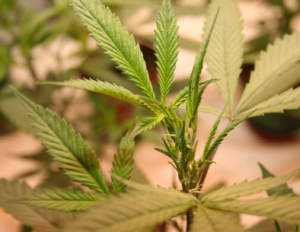The Obama administration announced it won’t go after pot users and providers in the states where marijuana is legal, but that doesn’t appear to have stopped the pain in Northern California.
U.S. Attorney Melinda Haag, notorious for her persecution of medical marijuana dispensaries and cultivators in the Northern District of California, has indicated she has no plans to change course – despite the contrary words of her own boss.
The New Federal Policy
The U.S. Justice Department announced on Aug. 29 that the federal government won’t sue to stop Washington and Colorado from instituting legalized weed. In addition, the feds won’t prosecute pot shops, medical or recreational, simply because of their size or volume.
In return, the states where pot is legal for any purpose must enforce strict regulations that prevent child use, accidents, violence, gang and cartel activity, and interstate trafficking.
The policy applies in all 20 states where cannabis has been legalized to some degree, including Colorado and Washington. But it isn’t retroactive, meaning criminal cases filed before the announcement can proceed.
Melinda Haag’s Battle
Haag has developed a reputation in NoCal for an especially draconian approach to medical pot. Most recently she has been involved in a battle to shut down Harborside Health Center of Oakland, billed as the world’s largest weed shop.
The case, which involves civil forfeiture procedures, is an attempt to shutter one of Oakland’s few and most popular dispensaries, which serves thousands of patients. Since Haag tried to seize the shop, the community has rallied behind its owner, with the city suing to keep it open.
Haag’s office is also trying to close Harborside’s sister dispensary in San Jose and the Berkeley Patients Group dispensary in Berkeley. And she has closed down the medical marijuana farming program in Mendocino County.
Haag’s Battle Continues…
On Aug. 30, a spokeswoman for Haag’s office indicated Haag’s ongoing cases would continue despite the new administration policy.
“At this time the U.S. attorney is not releasing any public statements,” said Lili Arauzhaase. “The office is evaluating the new guidelines and for the most part it appears that the cases that have been brought in this district are already in compliance with the guidelines. Therefore, we do not expect a significant change.”
Since the new policy doesn’t affect already-pending matters, Haag’s office may be correct that it covers her ongoing cases. But federal prosecutors have wide discretion in which matters they pursue and how they do so, so the real question may be whether Haag fully accepts her own boss’ orders.
 California Marijuana Market Breaking "Marijuana News" from CA
California Marijuana Market Breaking "Marijuana News" from CA


